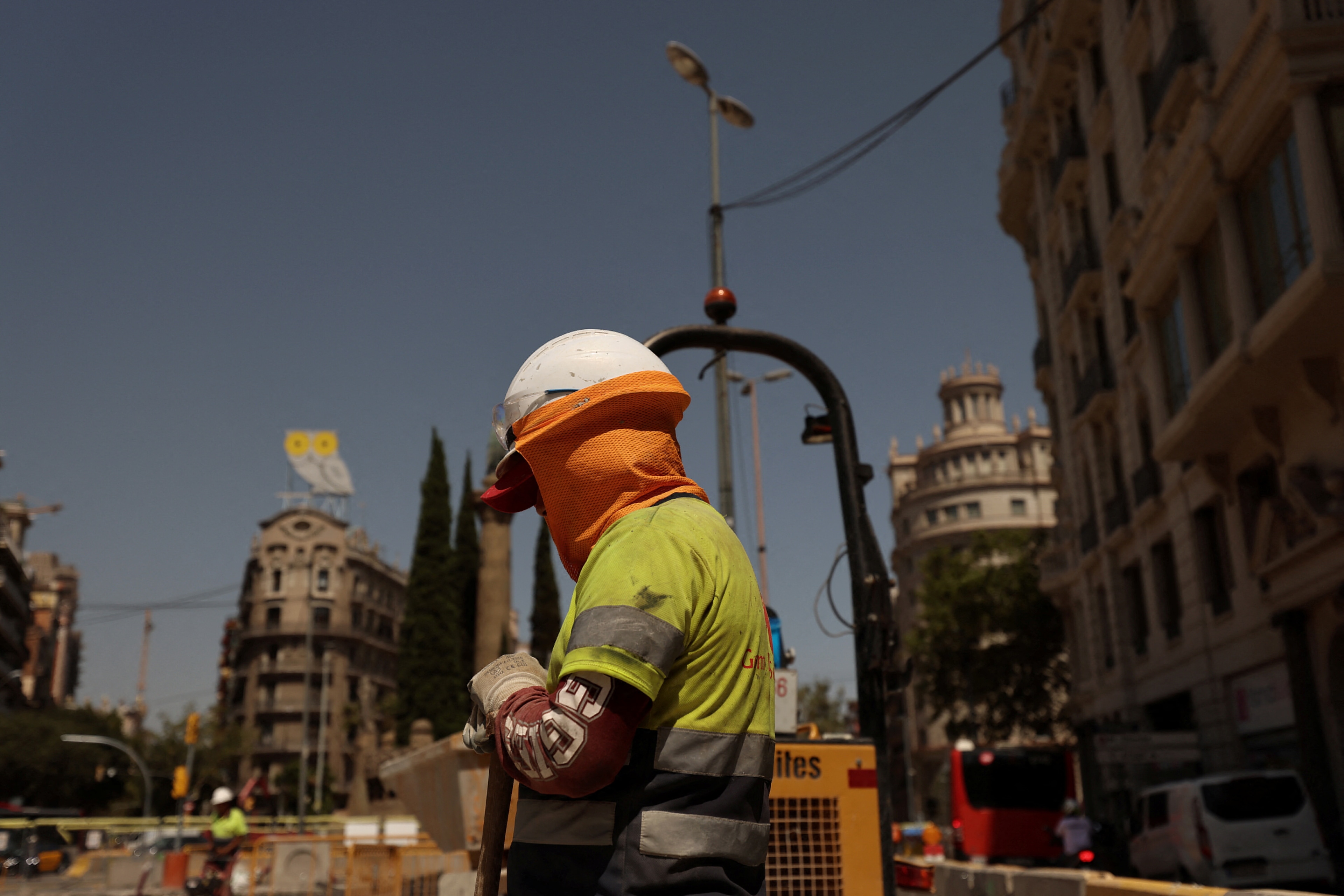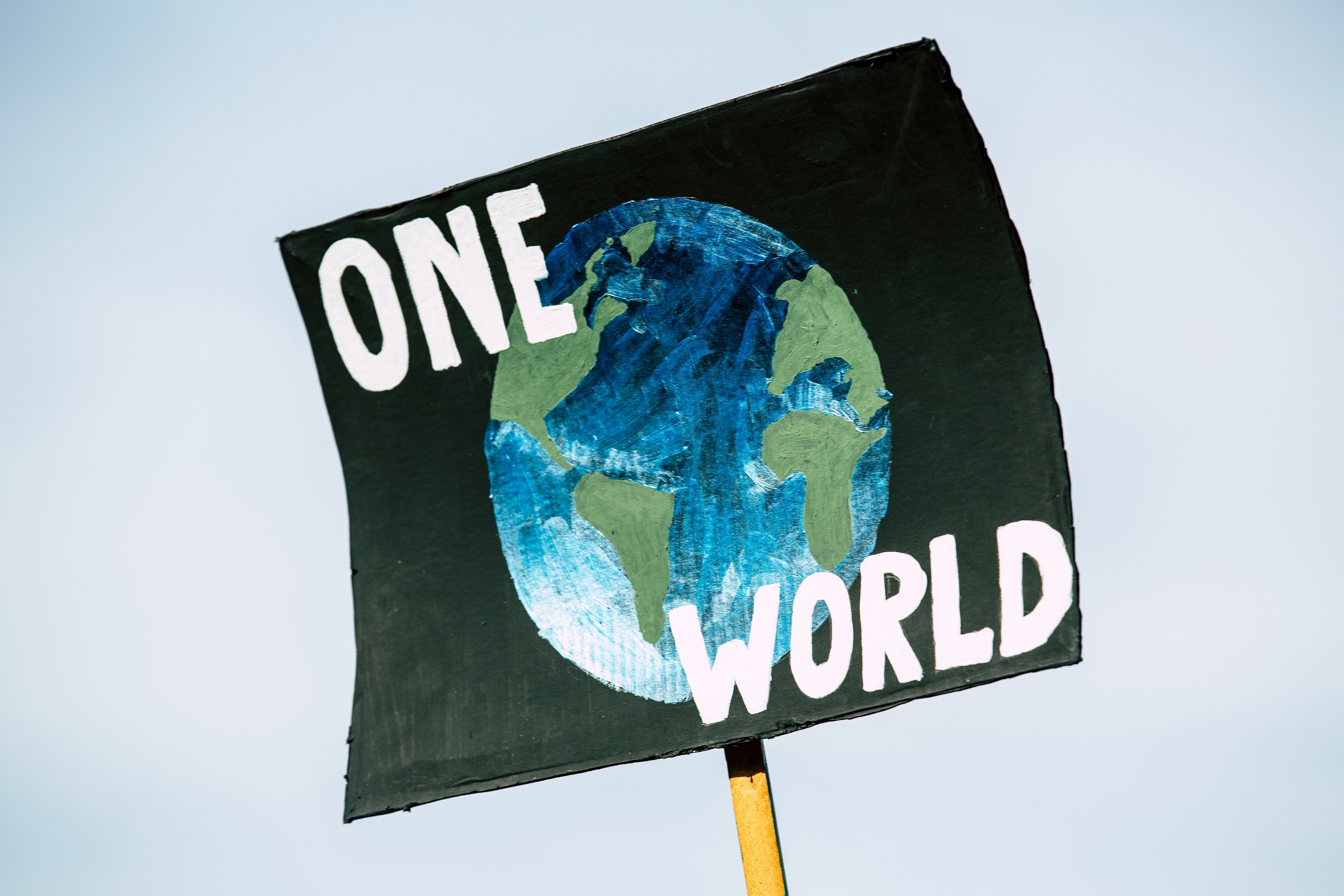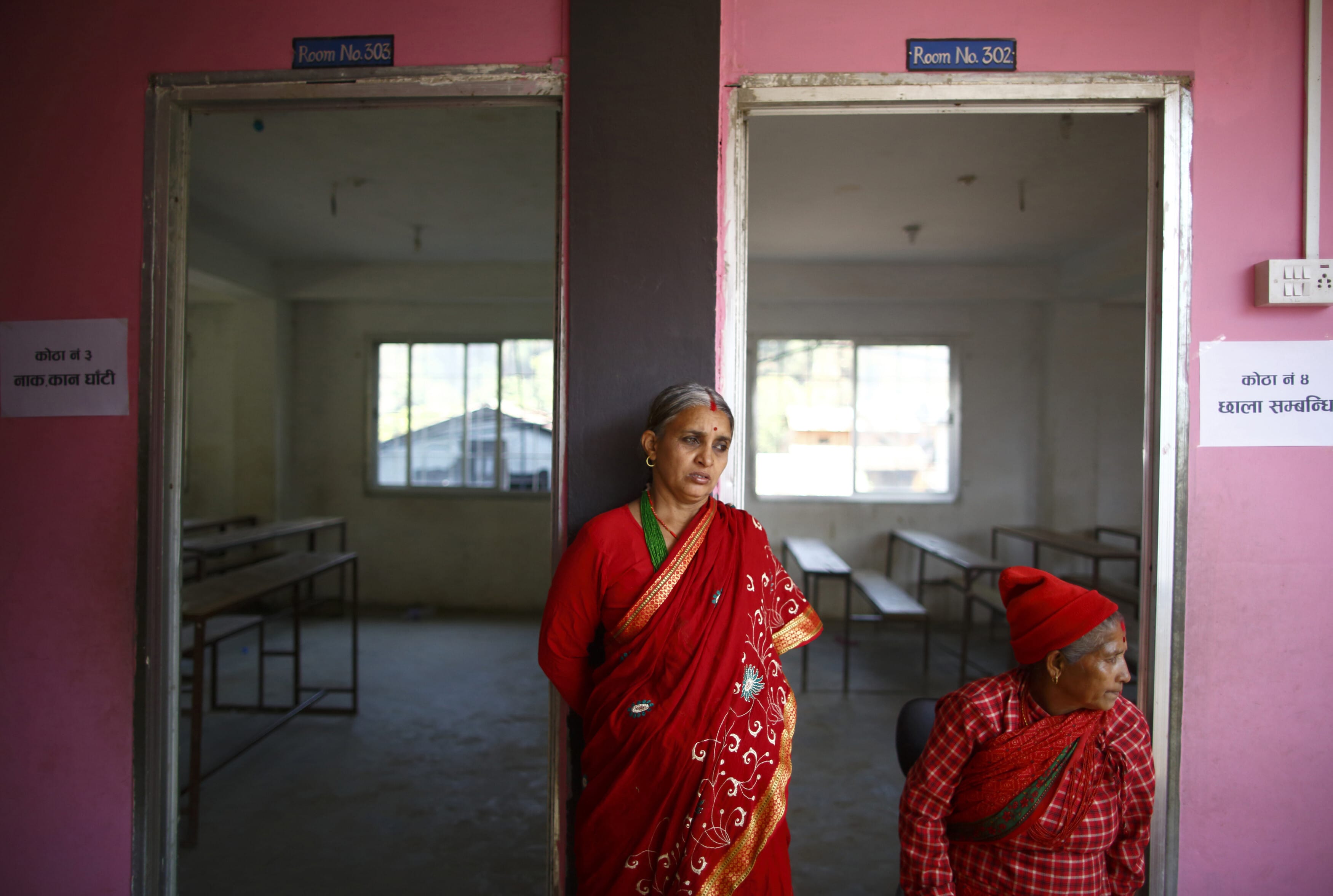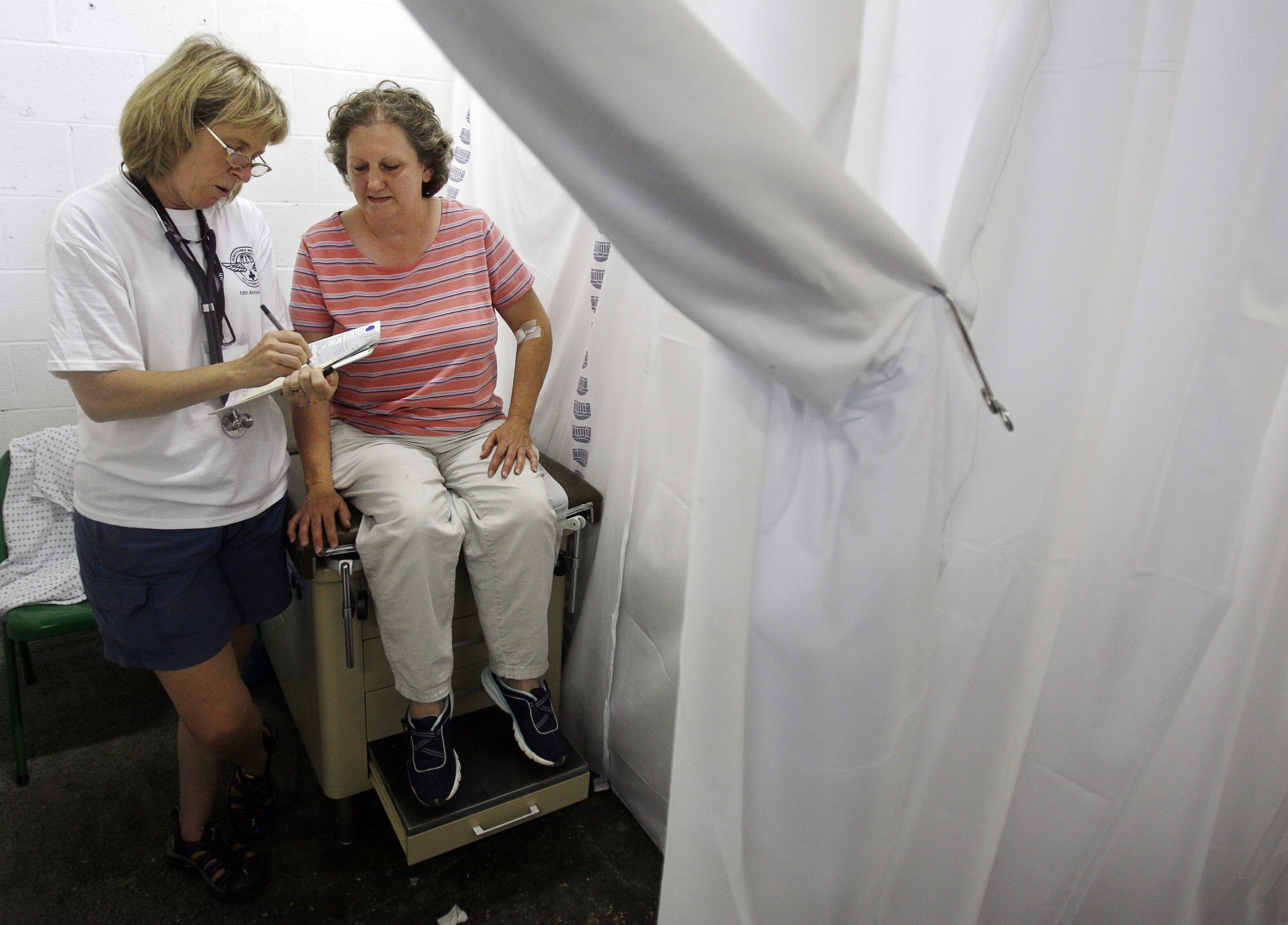How we can survive the great COVID lockdown: IMF Chief Economist Gita Gopinath

Stay up to date:
Social Protection
- Speed and scale of job losses is unprecedented.
- Countries face debt squeeze, action needed to avoid 'full-blown debt crisis'.
- Debt relief for poorer countries; 'solidarity tax' among possible responses.
- Gita Gopinath speaks to World Vs Virus podcast.
- Subscribe to the World Vs Virus on Apple, Soundcloud or Spotify to get it every week.
The COVID-19 pandemic has devastated lives and livelihoods. As countries tried to contain the virus, the world has been put in lockdown, triggering an economic crisis with far-reaching implications.
Even after rapid financial policy and an economic restart, the recession and damage to businesses will have lasting effects, especially considering that global debt was already at record-breaking levels before the crisis began.
In this interview, Gita Gopinath, Chief Economist at the International Monetary Fund, says the magnitude and speed of collapse in economic activity is unlike anything experienced in our lifetimes. She talks about what needs to be done, globalization, tackling the climate crisis and the “abundantly clear” need for global cooperation.
Accept our marketing cookies to access this content.
These cookies are currently disabled in your browser.
This started out as a health crisis and it has led to an economic crisis. What should our response be? And at what point, if at all, can you see economies getting back to normal again?
This is a crisis like no other and that means that the policies will be very different this time. Very glaringly, the number one policy has to be with regard to health. Because this is a health crisis, which means that governments have to spend on ensuring that they have enough health facilities, that there is enough medical equipment, testing, contact tracing. These are kinds of things that have not been an issue in previous recessions and they’re needed not just for mitigating the crisis, but also for ensuring a sound recovery.
The second big difference is the speed and scale with which this crisis is leading to job losses is something that we have not seen before. It means that policies have to be very targeted in helping firms and workers that are directly impacted by the lockdowns. We call this the Great Lockdown because, if you look around the world, the containment measures that have been put in place which are needed to deal with the health crisis are generating the scale of contraction in activity that are just historical in terms of numbers. And the collapse in consumption that we have seen in terms of the data coming in is really at record highs. So this is why this is a different crisis.
Now, of course, there's a financial aspect to it and you're seeing a lot of support coming from central banks around the world to support financial markets, but the crucial role here is to ensure that households and firms can get back on their feet as quickly as possible and that we can return to more normal activity, once this, the health problems are more under control.
People have been talking about the pandemic debt crisis, which economies do you think will be most affected? And how do you see this crisis playing out?
Coming into this crisis, we had about 40% of low income countries that were either already in debt distress or at high risk of being in debt distress. And now we have the additional spending needs. I mean, these are critical spending needs. These cannot be postponed. Governments have to spend on health and on people’s livelihoods. That has implications for debt levels.
So I would say that there are two kinds of issues we need to think about with respect to the debt problem.
One is that countries that are already in that distress with very high levels of debt that are not able to borrow at reasonable terms on international markets. For these countries, the approach has to be to provide concessional financing and, for the poorer countries, debt service relief. At the IMF we are doing both of those. We have rapid lending facilities to countries, we've doubled the access limits to that and we have over 100 countries that have approached us for rapid financing needs.
Secondly, we're also providing debt service relief on the debt that's owed to the IMF until the end of this year. And I suspect that this will have to be a discussion that continues going forward. There will be countries that will need this more.
There was a G20 effort for other official creditors to provide debt relief. That is very welcome and that's progressing but I suspect more will be needed in the following years, both in terms of the timescale and in the nature of the debt relief that's being provided.
Then, there's a second bucket of countries where there is no debt crisis at this point. We need to make sure that they receive the right amount of liquidity that they need to prevent them being pushed into a solvency problem, which is that they should be able to borrow at reasonable rates on markets.
Now, what a lot of interventions or central banks have done, for instance, the US Fed in terms of the liquidity measures, have helped calm the markets for some of these countries, but that's not guaranteed in the coming years. So liquidity facilities will be needed and there the IMF is playing a role. We just put in place a new short term liquidity line for countries. So I would say there's a solvency issue, there's a liquidity issue, and both of these need to be addressed, not just now, but in the next many months to ensure that there is not a full-blown debt crisis.
What is the World Economic Forum doing about the coronavirus outbreak?
So how will things pan out in six months time, 12 months time and 18 months time?
In six months time, it looks like, for many countries, that the health problems will still be there. The prospects of a vaccine are there but the best-case scenario is maybe another 10 months before we see a candidate vaccine.
So for the next six months, we're in Phase One, where there will be containment measures. Then, there will also be several countries in Phase Two, which are reopening their economies. But without a full medical cure, they will need to continue to support their economies and there might be stop-and-start measures in terms of lockdowns. Then, maybe we get to Phase Three where we have the vaccine and countries are dealing with very elevated debt levels. How are they going to deal with that?
Again, it depends on the country. So it is quite likely that interest rates will stay very low for very long. That obviously helps certain countries, advanced economies especially, to roll over their debts at very low rates; and once we start recovering growth, that should help bring down the debt levels.
For other countries, especially the poor nations, I think that debt restructuring and debt relief will have to continue. And therefore, I would say countries will have to find ways of raising revenues and, you know, progressive taxation could be one form of it. We talked about solidarity tax that may be needed in some countries. So it varies across countries but this will be an issue that countries will have to deal with it because it will be one of the big legacies of this crisis.
What advice are you giving out to leaders on what to do with their economies?
The advice in each of the three phases is very different. In the first phase, you have to do whatever it takes to help address the health problems and spend on that. You have to ensure that firms and workers are able to survive this crisis and be quite generous in who you help, broaden the scope of unemployment insurance that you provide.
In the second phase, the questions started coming up that you can't do this on an unlimited basis and a decision will have to be made about how many firms can you actually protect going forward and how many would fail.
Some sectors might see a very permanent shift in demand. Any travel related industries, international tourism, can take a quite large hit. So then we entered a phase where you cannot support everybody and you have to think of which ones are more systemically important, strategically important. And for the other ones, you will have to let them go into bankruptcy, but then figure out a way of how they can come back very quickly when things resume, assuming there's enough demand for them.
So there are all these different phases of the crisis and the advice is very different. What we have learned, despite all the uncertainty that exists, is that there's one very good set of things that you can do, which helps every economy at every stage and that is testing, contact tracing, ensuring you have very good medical facilities, very good communication of how the health situation is evolving in your country.
If you look at which countries are having greater success in recovering, that is the number one factor. The second factor is countries that are putting in substantial fiscal measures to help their households, their workers and their firms, those are the ones where we are seeing a recovery coming back up.
An important next step that’s needed, as medical solutions are made available and vaccines get discovered, is that they are produced at sufficient scale, that they can be made available to everybody in the world as fast as humanly possible. And that is another big initiative that's needed.
What is the World Economic Forum doing to manage emerging risks from COVID-19?
Is there a point in economies at which the money runs out? What worries you as an economist?
If there is such a collapse in activity where nothing is getting produced, there's no income and people aren't consuming, then that is a tragic outcome for any economy. But I don't think we are anywhere close to that.
We are seeing a rapid collapse in economic activity. Because of the Great Lockdown, we are seeing a big drop in production everywhere in the world; we have seen a significant collapse in consumption. But a big part of that just is a reflection that people aren't going to retail stores and they're not going to restaurants - just because the rules don't let them do that.
But the whole point of policy is the factors of production, as we say in economics. What are the things that matter? What matters are the people, the human capital, the physical capital in terms of the infrastructure that's built and how productively all these inputs are used.
Nothing has changed with human capital. We still have the same level of human capital that people had before the crisis. There is tremendous physical infrastructure. There's a lot of physical capital that still is there to be used. So the policies are just about making sure that we can restart as quickly as possible.
So the scenario that we should expect is that the human capital, the physical capital can be used productively to bring economic activity back to where they were. The fundamentals of what drives any economy remain. They have not disappeared.
How is this crisis showing the value of the state, of public services, of the private sector? We talk about essential workers, should we change the way we talk about what's essential for our economies?
You're absolutely right. In dealing with this crisis on the front line, the nurses, the doctors and the first responders are doing an incredible job to maintain lives and ensure that people feel that they can get the healthcare that they will need. Kudos to them. Every country has to be very, very thankful to all of these professionals - and not just in terms of words but also in terms of providing them the policy packages that can support them.
Secondly, I think it is what this crisis has made very clear that countries that have very strong healthcare systems, and especially those that are available to the vast majority of people, are able to cope with this crisis much better. That is something that I think should be a given even before this crisis.
But has made it even more apparent. You have to find a way of providing a strong social safety net to people. Having systems in place where you can transfer resources to people in situations like this, and the fastest way you can do that using digital technology, those were the countries or able to deal with this crisis much, much better.
It's quite clear that in crises of this kind, you end up with a much bigger role for the public sector. That's traditionally what happens. The same thing will happen now too but I believe it's very important for countries to recognize that there are some essential services that need to be provided in terms of healthcare, in terms of education, in terms of good governance, in terms of social security, social safety, that cannot be compromised on.
I think what this crisis has also made abundantly clear is the need for global cooperation. This is a virus that doesn't respect borders. It crosses borders and as long as it, it is in full strength in any part of the world, it's affecting everybody else. So this requires global cooperation to deal with it.
The climate scientist Bill McKibben said that if we're bailing out corporations, they should bail out the planet.
Should stimulus packages have strings attached? Should we be asking for conditions around climate resilience, lower emissions, public funding of health, support for workers?
Depending upon the phase of the crisis, the kinds of conditionalities you put can change. For instance, now in most countries that are in Phase One or Phase Two of the crisis, the goal is to make sure that workers and firms stay connected. We don't want to see very disruptive job losses that make it difficult then to bring back workers onto jobs. That has implied that when governments have provided money to firms, they put in conditions that if they want this loan to turn into a grant, they should prove that they had a significant fraction of their workers continuing to work for them. That is a conditionality which helps the economy from everybody's perspective.
It's important that if you are going to provide money to any institution, any companies or banks, that money doesn't get turned around and sent to shareholders in the form of dividends or to share buybacks. There are several countries that have put those kinds of conditionalities in there. They have come with strings attached in a meaningful way.
To the question on climate, that is a very important issue and it's quite clear that nature strikes in ways that we cannot always imagine. Climate change could be even worse so we have to prepare for that. But the question is how do we get there? To get to a much greener economy, to get the most planet-friendly way of doing economic activity, what are the best measures that we can take?
What’s clear is that what is needed is to ramp up production of alternative forms of energy - that has started out but you need a second push for that. Second, to have infrastructure that's much more climate friendly. In both of these measures, the public sector can play a very big role.
When you get to a phase when countries are trying to stimulate their economies to do more traditional public spending, public infrastructure spending that takes a more climate-friendly form would be very helpful.
Once you have alternatives to energy and green physical infrastructure, then you can obviously put on top of that carbon pricing so that companies and firms internalize the impact of their activities on climate.
These are the things that need to be done, and I think this is a very good opportunity for all of these things to happen because people are recognizing that nature can have a really dramatic impact on people’s health and on your economic life.
What do you think is the future of capitalism and of globalization?
I want to be optimistic and I want to say that the world will come together and we will come out of this eventually in a stronger, better form in terms of globalization
But I am worried at this point. We entered this crisis with a weakening appetite for globalization and for countries looking more inward, and this crisis has accelerated that partly because of the nature of this crisis.
As you have seen, there have been shutdowns on travel across borders, global supply chains have broken down but the bigger concern is that countries will then turn more protectionist, decide to move production more to their home countries, to put controls on exports.
That is a major concern. So we just have to remind ourselves that the world has benefited, tremendously, if not perfectly, from globalization. It has created a lot more jobs; it has reduced cross-country inequality by raising incomes in poorer countries; it has reduced poverty in many countries in the world. Now it's not perfect. It needs to be fixed and much more needs to be done, but at this stage, to move back into a very protectionist stance, and you know, drastically cut interactions with other countries in terms of goods and in terms of people will just make it very difficult to recover from this crisis. Firms rely on global production to get the cheapest inputs. If that, if that is not available to them, then they just can't bring back workers onto their factories. So it's just going to make it that much more difficult.
Find all previous episodes of World Vs Virus here.
Subscribe on Apple, Soundcloud or Spotify.
Don't miss any update on this topic
Create a free account and access your personalized content collection with our latest publications and analyses.
License and Republishing
World Economic Forum articles may be republished in accordance with the Creative Commons Attribution-NonCommercial-NoDerivatives 4.0 International Public License, and in accordance with our Terms of Use.
The views expressed in this article are those of the author alone and not the World Economic Forum.
Forum Stories newsletter
Bringing you weekly curated insights and analysis on the global issues that matter.
More on Health and Healthcare SystemsSee all
Andrea Willige
September 22, 2025
David Elliott
September 22, 2025
Amira Ghouaibi
September 22, 2025
David Elliott
September 19, 2025
Jan-Willem Scheijgrond and Syaru Shirley Lin
September 18, 2025
Nina Rawal and Dorothy Chou
September 18, 2025








